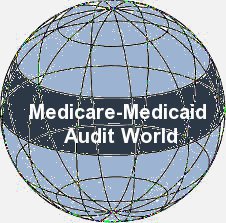 On July 18, 2012 the HHS Inspector General released an audit entitled Review of Medicare Payments Exceeding Charges For Outpatient Services Processed by Wisconsin Physicians Service Insurance Corporation in Jurisdiction 5 For The Period January 1 2006 Through June 30, 2009. The audit analyzed 2,197 line items on claims for outpatient services paid by Wisconsin Physicians Service (WPS) in which the amount paid by Medicare was more than $1,000 greater than the provider’s bill and in which the line item billed for more than 3 units of service. The audit found, among other things, that incorrect units of service were reported on 1,182 line items resulting in overpayments to the providers of at least $4,411,569.
On July 18, 2012 the HHS Inspector General released an audit entitled Review of Medicare Payments Exceeding Charges For Outpatient Services Processed by Wisconsin Physicians Service Insurance Corporation in Jurisdiction 5 For The Period January 1 2006 Through June 30, 2009. The audit analyzed 2,197 line items on claims for outpatient services paid by Wisconsin Physicians Service (WPS) in which the amount paid by Medicare was more than $1,000 greater than the provider’s bill and in which the line item billed for more than 3 units of service. The audit found, among other things, that incorrect units of service were reported on 1,182 line items resulting in overpayments to the providers of at least $4,411,569.
 Examples cited by the OIG include one provider who billed Medicare for an incorrect number of service units on 114 line items in which the provider billed between 640 and 656 service units rather than the correct 32 service units. As a result of these errors, WPS paid the provider $219,518 when it should have paid $10,097, an overpayment of $209,421.
Examples cited by the OIG include one provider who billed Medicare for an incorrect number of service units on 114 line items in which the provider billed between 640 and 656 service units rather than the correct 32 service units. As a result of these errors, WPS paid the provider $219,518 when it should have paid $10,097, an overpayment of $209,421.
Another provider billed Medicare for an incorrect number of service units on 72 line items. Rather than billing between 1 and 3 service units, the provider billed between 42 and 45 service units. WPS paid the provider $178,308 when it should have paid $7,941, an overpayment of $170,367.
 When questioned by the OIG about the errors, the providers attributed the incorrect payments to clerical errors or to billing systems that could not prevent or detect the incorrect billing of units of service and other types of billing errors.
When questioned by the OIG about the errors, the providers attributed the incorrect payments to clerical errors or to billing systems that could not prevent or detect the incorrect billing of units of service and other types of billing errors.
Section 6402 of the Affordable Care Act
Section 6402(d) of the Affordable Care Act (42 U.S.C. §1320A-7k(d)) requires providers to return to CMS any overpayment received within 60 days of the date the overpayment was identified. Failure to do so is a violation of the False Claims Act (31 U.S.C § 3729), which provides in § 3729(a)(1) for a civil penalty of between $5,000 and $10,000 for each false claim, plus 3 times the amount of damages suffered by the Government and the Government’s cost in bringing the civil action. On February 16, 2012, CMS published a Proposed Rule to implement the provisions of Section 6402.
CMS’ proposed rule defines “Overpayment” as:
Overpayment means any funds that a person has received or retained under title XVIII of the Act to which the person, after applicable reconciliation, is not entitled under such title.
Some of CMS’ examples of overpayments include
- Medicare payments for noncovered services.
- Medicare payments in excess of the allowable amount for an identified covered service.
- Errors and nonreimbursable expenditures in cost reports.
- Duplicate payments.
- Receipt of Medicare payment when another payor had the primary responsibility for payment.
According to § 305(a)(2) of CMS’ proposed rule, an overpayment is identified and therefore must be returned within 60 days “[i]f the person [provider] has actual knowledge of the existence of the overpayment or acts in reckless disregard or deliberate ignorance of the existence of the overpayment.”
Does Section 6402 Apply to the Payments Identified in the OIG’s WPS Audit?
As described by the OIG, there is no doubt that the reported payments received by the providers from WPS were overpayments. The more difficult question, however, is whether the providers, in accepting and retaining payments from Medicare in amounts significantly greater than the amount billed and without further investigation, acted in reckless disregard or deliberate ignorance of the existence of the overpayment.
 If the Rule as proposed by CMS is made final, the answer might be yes. If so, the incorrect billing of the 1182 line items identified by the OIG would subject the providers to civil penalties of between $5,910,000 and $11,820,000 and damages of $13,234,707, a very very scary situation. If providers do nothing else, they should absolutely investigate any Medicare payment greater than the amount billed.
If the Rule as proposed by CMS is made final, the answer might be yes. If so, the incorrect billing of the 1182 line items identified by the OIG would subject the providers to civil penalties of between $5,910,000 and $11,820,000 and damages of $13,234,707, a very very scary situation. If providers do nothing else, they should absolutely investigate any Medicare payment greater than the amount billed.
Please contact us if we can be of any assistance with what to do about potential overpayments or in helping to resolve any other issue in the Medicare-Medicaid Audit World.
 Medicare-Medicaid Audit World
Medicare-Medicaid Audit World






